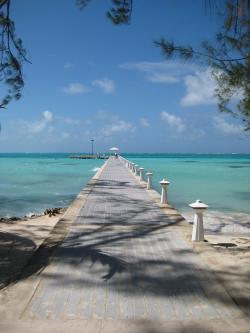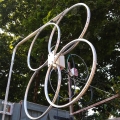jks
About
- Username
- jks
- Joined
- Visits
- 36,245
- Last Active
- Roles
- Member, Administrator, Moderator
- Points
- 639
Reactions
-
Galileo down [alert flag added in v1.302]
A few small changes in today's update:
Thanks to Kiwi forum member @fractional_n for the suggestion about QZSS.v1.306 July 18, 2019 Admin GPS tab improvements: Galileo sats in alert are removed from the channel after a few seconds. New priority mode for QZSS. It's been pointed out that because there are relatively few QZSS sats at present (4 currently) they can be unfairly "locked out" if many Navstar and Galileo sats are being received and taking all the channels. If the priority checkbox is set the last two free channels are reserved for QZSS sats. This number is reduced if sufficient QZSS sats already occupy a channel. For example if 3 QZSS sats have a channel only one is reserved to try and capture the 4th. -
Galileo down [alert flag added in v1.302]
So other sources are reporting that most of the Galileo ephemerides seem to have returned to normal. I have noticed this in my testing and the "TDoA capable" count on kiwisdr.com/public has been > 250 all day.
These same sources also said there was little correlation between sats with the alert flag set and sats with ephemerides "issue of data" (IODE) values indicating invalid navigation data. When I added code to track the age of updates to the IODE I noticed the same thing. So this criteria needs to be added in addition to just looking at the alert flag. This is apparently how professional receivers work. -
Galileo down [alert flag added in v1.302]
-
Galileo down [alert flag added in v1.302]
-
(newbie question) How can I search for DRM stations in a KiwiSDR share?
Update: the Kiwi in Kuwait has an excellent, strong signal. The DRM signal itself is supposed to be coming from Kuwait according to http://www.hfcc.org/drm -
(newbie question) How can I search for DRM stations in a KiwiSDR share?
-
Galileo down [alert flag added in v1.302]
-
Galileo down [alert flag added in v1.302]
v1.303 is out with a new switch "Include Galileo?". Also fixed a bug where "Include alerted?" didn't have immediate effect each time you changed it. Also fixes-per-minute is shown as "f/min" at the bottom of the page.
Now I've seen cases where including non-alerting Galileo sats will change solutions ("S") from green to red reliably. So that seems to be an indication that not all sats capable of causing problems are marked alerted. But I've also seen plenty of cases where Galileo sats are providing perfectly fine solutions too. -
Galileo down [alert flag added in v1.302]
-
Galileo down [alert flag added in v1.302]
Since last Thursday/Friday:
https://www.gpsworld.com/galileo-down-over-weekendNOTICE ADVISORY TO GALILEO USERS (NAGU) 2019026 DATE GENERATED (UTC): 2019-07-13 20:15 NAGU TYPE: GENERAL NAGU NUMBER: 2019026 NAGU SUBJECT: SERVICE OUTAGE NAGU REFERENCED TO: 2019025 START DATE EVENT (UTC): 2019-07-12 01:50 END DATE EVENT (UTC): N/A SATELLITE AFFECTED: ALL EVENT DESCRIPTION: UNTIL FURTHER NOTICE, USERS EXPERIENCE A SERVICE OUTAGE. THE SIGNALS ARE NOT TO BE USED.
This may have implications for the Kiwi as the Galileo code does not currently recognize a sat being in an "alarm" state preventing its use in position/timing solutions. For example the alarm state of QZSS sats is correctly detected and an option exists on the GPS tab of the admin page to include alarmed sats or not (Q195 is in alarm as of this writing).
The Galileo code does look for alert pages in the I/NAV messages (page type = 1). But none of these are currently seen. We are looking more closely at the Galileo ICD to see what other bits might be present the code should be checking.
Below is an image where the position solutions differ substantially when Galileo is included in the pool of sats (red markers) versus not (green markers). The green markers are close to the true position.



